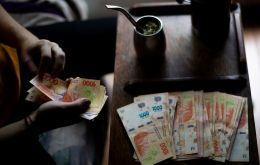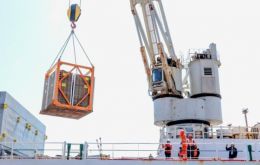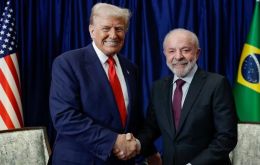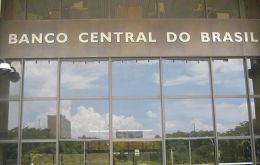MercoPress. South Atlantic News Agency
Economy
-
Monday, December 8th 2025 - 10:47 UTC
Prolonged stagnation reported in Argentina

Argentina's Industrial Union (UIA) released a study last week showing simultaneous declines in production, sales, employment, and finances. The UIA's Industrial Performance Monitor (MDI) remains below the expansion threshold for the 14th consecutive survey, signaling a deepening contraction across all sectors, driven by weak demand and rising costs.
-
Saturday, December 6th 2025 - 10:01 UTC
Brazil's economy grows 0.1% in Q3 of 2025

Brazil's economy expanded by 0.1% in the third quarter of 2025 compared with the previous quarter. Year-on-year, Brazil's Gross Domestic Product (GDP) —the measure of the total value of goods and services produced in the country—rose by 1.8%. Over the past four quarters, GDP registered cumulative growth of 2.7%, according to a Brazilian Institute of Geography and Statistics (IBGE) report released this week.
-
Saturday, December 6th 2025 - 09:36 UTC
Argentina: Dollar keeps falling after new debt plan announcement

Argentina's official exchange rate and key financial dollar segments registered declines on Friday, after Economy Minister Luis 'Toto' Caputo announced plans for a new dollar-denominated bond issuance aimed at refinancing maturities and strengthening foreign currency reserves.'
-
Wednesday, December 3rd 2025 - 11:16 UTC
Brazil clinches export clearances with Philippines, Guatemala, and Nicaragua

Brazilian authorities have completed negotiations with the Philippines, Guatemala, and Nicaragua to expand agricultural exports to these countries after reaching an understanding on sanitary and phytosanitary requirements.
-
Wednesday, December 3rd 2025 - 10:59 UTC
Lula and Trump discuss organized crime and trade tariffs

Presidents Luiz Inácio Lula da Silva of Brazil and Donald Trump of the United States held a 40-minute telephone conversation on Tuesday, focusing on boosting joint efforts to combat international organized crime and the further reduction of US tariffs on Brazilian goods.
-
Tuesday, December 2nd 2025 - 10:39 UTC
Strong peso leading to outflow of dollars from Argentina

Argentina is on track for a historic outflow of dollars due to surging outbound tourism, driven by a favorable exchange rate. Initial projections for this year have been significantly revised upward, with analysts now anticipating a total dollar outflow between US$11 billion and US$13 billion (around 1.6% of the country's GDP), which would outpace the US$10.662 billion recorded in 2017 under then-President Mauricio Macri.
-
Monday, December 1st 2025 - 21:30 UTC
Brazil's Central Bank lowers inflation forecast for 2025

Brazil's Broad National Consumer Price Index (IPCA) projections for this year have slipped from 4.45% to 4.43%, according to the latest issue of the weekly Focus Bulletin (FB) released by the Central Bank (BCB) on Monday. The IPCA is tantamount to the country's inflation index.
-
Monday, December 1st 2025 - 21:01 UTC
Uruguay leads Latin America in electric car sales

Uruguay has cemented its position as the undisputed leader in Latin American electric vehicle (EV) adoption, achieving a remarkable market penetration of 27.97% in the third quarter of 2025, the Latin American Zero Emissions Observatory (ZEMO) reported. The South American country is way ahead of its nearest competitor (Costa Rica, with 16.26%).
-
Saturday, November 29th 2025 - 09:24 UTC
Argentine SME's decry effects of Milei's policies

The Argentine Confederation of Medium-Sized Enterprises (CAME) is sounding the alarm over business closures, attributing the crisis to the government's dual policies of import openness and reduced consumption.
-
Friday, November 28th 2025 - 00:45 UTC
Falkland Islands Holding losses narrow but weakness persists in Falklands

The Financial highlights of the Falkland Islands Holding Group, (FIH) indicate, despite a 4% increase in revenues to £18.9 million on the six months ending September 2025, that overall revenue was below prior year at £40.9 million (2024: £52.5 million).
